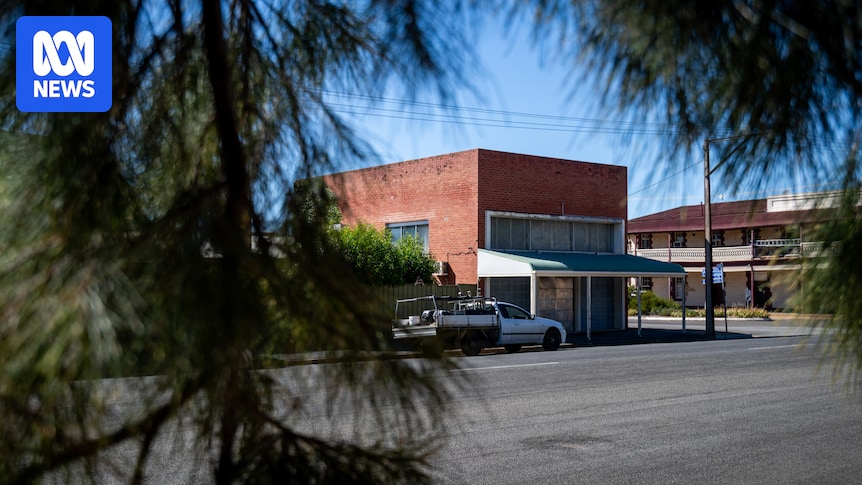Snowtown murderer James Vlassakis has been granted parole after serving 26 years in jail.
Vlassakis was the youngest of the four perpetrators involved in South Australia’s “bodies-in-the-barrels” serial killings between 1992 and 1999.
He was also the key prosecution witness against killers John Bunting and Robert Wagner, who are serving life sentences without the prospect of parole.
In May 1999, police made a chilling and gruesome discovery
The South Australian Parole Board announced its decision on Tuesday afternoon, but Vlassakis will not be immediately released into the community.
The board’s chair Frances Nelson KC said there would now be a 60-day period during which the SA Attorney-General, the Commissioner for Victims’ Rights and Police Commissioner could ask for a review.
“He would then go to the pre-release centre for up to 12 months,” she said.
Ms Nelson said she believed Vlassakis was “genuinely remorseful”, and that he was a suitable candidate for parole.
“We’ve had a look at the legislative criteria and, in our view, he meets the criteria,” she said.
“We have to look at whether or not he presents a risk to the community and in our assessment he does not. His institutional behaviour has been excellent.
SA Parole Board Chair Frances Nelson KC said she thinks Vlassakis is “genuinely remorseful” and that his “institutional behaviour has been excellent”. (ABC News)
“Don’t forget he has done it hard in prison, because he gave evidence against Bunting and Wagner.
“He spent his formative adult years in a very structured environment.”
Friend of Snowtown victim speaks out
Ms Nelson said Vlassakis had “family support” but would also be assisted to adjust to modern life, and would be linked up with an employment agency.
“He will need a period of reintegration and re-socialisation and that will take some time,” she said.
The parole chair said that, as of this afternoon, Vlassakis had not been informed of the parole board’s decision.
“We weren’t prepared to give him that information until the Commissioner for Victims’ Rights has had the opportunity to contact the victims,” Ms Nelson said.
The commissioner, Sarah Quick, described the board’s decision as one that would “understandably bring fresh pain and anger” to the murder victims’ friends and family, “who have already suffered beyond measure”.
“These individuals are not only worn down by their trauma, but also by the ongoing criminal justice processes,” she said.
“The prospect of Mr Vlassakis re-entering the community is a difficult reality for the victims and will require a significant emotional adjustment, adding to an already unbearable burden.
“We must never forget that — for the friends, family and loved ones of murder victims — the impact of the killing does not end simply because a prison term has ended.”
Sarah Quick said Vlassakis’s release would “bring fresh pain and anger” to the loved ones of the murder victims. (ABC News: Che Chorley)
Ms Nelson said while she understood while families and victims opposed Vlassakis’s release, it was not the role of the parole board to decide on punishment.
“Many victims have the view that someone hasn’t really got a long enough sentence and they shouldn’t be released, but that isn’t a matter that should even feature for the parole board — it would usurp the function of the courts,” she said.
“The court does not have to set out a non-parole period but they did in his case, and they set a much reduced non-parole period for reasons which are set out in the sentencing remarks.”
‘Geographic exclusion zones’ and curfew
When asked by journalists whether Vlassakis would be able to change his name, Ms Nelson said he would need permission from the chief of the Department of Correctional Services.
“I very much doubt he would get that permission,” she said.
Snowtown killers John Bunting and Robert Wagner in custody. (ABC News)
Ms Nelson outlined strict restrictions which Vlassakis would be required to adhere to.
“There will be some geographic exclusion zones which the victims have requested, there would be condition that he’s not to contact any of the victims — not that I think for a moment that he would, but that does give them some reassurance,” she said.
“He would [also] have to obey the rules of the pre-release centre which includes a curfew.”
The Snowtown serial killings were discovered in May 1999, when SA Police discovered the decomposing remains of several victims in six plastic barrels hidden in an old bank vault.
Police officers carry evidence bags out of the old Snowtown bank building in 1999. (ABC News)
Nearly all the murder victims were friends or family of the perpetrators.
Vlassakis, whose image remains suppressed and who is now aged in his mid-40s, was 19 when he committed the crimes and was found guilty of being involved in four of the murders.
He was jailed for life, but because he helped authorities, he was given a 26-year non-parole period.
He became involved in the serial killings through his stepfather Bunting, who lived with him and his mother in Adelaide’s northern suburbs.
Bunting and Wagner were jailed for 11 and 10 murders respectively, while accomplice Mark Ray Haydon was released into the community last year after serving a 25-year sentence.
Snowtown murders accomplice Mark Ray Haydon was released last year. (ABC News: Che Chorley)
Ms Nelson said last year that neither Bunting nor Wagner had shown any contrition for their crimes, and she added that they were “obviously very unpleasant people”.
“I don’t get the impression that either of them is particularly remorseful for what they did,” she said.

